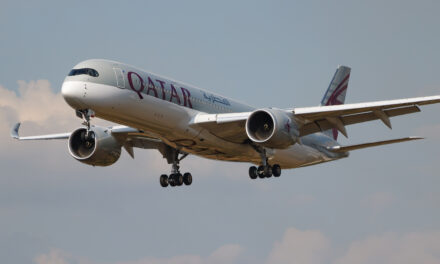Mastercard recently presented its comprehensive report titled “Deciphering the Dynamics of Global Business Travel”. This research is anchored on the feedback from over 500 pivotal travel decision-makers worldwide, offering insights into the evolving demands and challenges of business travel.
As corporate voyages start to regain momentum, this exploration by Mastercard underscores the transformative elements in play. These include the adoption of hybrid work structures, advancements like AI technology, and evolving corporate objectives coupled with shifting employee aspirations.
Chad Wallace, the spearhead of Commercial Solutions at Mastercard, commented, “Business travel is on the brink of a monumental shift. As it surges globally, ensuring a streamlined Travel & Expense (T&E) process becomes crucial. Our aim at Mastercard is to revolutionise travel payment methods, enhancing every phase of a business traveller’s journey.”
Wallace further added, “The realm of business travel is poised for significant change, especially concerning expenditure management. Innovative payment methods are emerging, addressing the dynamic industry needs. This allows firms and their travellers to gain instant insights into spending, fine-tune expenditure controls, and simplify expense monitoring.”
He also pointed out the burgeoning role of digital cards: “These cards offer a potent solution to historical challenges faced in business travel expenditures. They ensure superior transparency, robust safety, and offer meticulous control. This feature, which allows defining spend limitations based on purchase nature, duration, or vendor preference, can be revolutionary for businesses handling events, seminars, or corporate travels.”
Key Insights from the “Deciphering the Dynamics of Global Business Travel” Study:
- Pivotal Phase for Business Travel: A resounding 90% of influencers in the sector predict that the evolving hybrid work culture will markedly amplify business travel activities over the next decade. A significant 87% view this shift as a chance to modernise long-standing practices.
- Changing Landscape of Travel Expenses: A surge in travel translates to increased T&E outlays. Interestingly, a two-thirds majority indicated varied expenditure patterns, attributing it to the newer work culture making it challenging to anticipate and allocate budgets for travel.
- Advent of the “Chief Travel Officer”: Presently, travel planning in organisations is dispersed across departments – be it HR, finance, security, or tech. This makes consolidation tricky. About 85% of participants anticipate a dedicated “Chief Travel Officer” role emerging in the next decade to centralise and manage this complexity.
- Economic Implications of Business Travel: Business trips are vital not only for expansion but also for maintaining steady revenues and talent retention. Close to half of the respondents cautioned about a potential 10% revenue slump and a parallel surge in employee attrition if there’s a decline in business travel in the upcoming three years.
- Push for Corporate Travel Cards: It’s intriguing that one-third of decision-makers revealed employees often use personal cards for business travel bookings. This poses challenges in tracking expenses and lost reward opportunities. With the changing work dynamics, a striking 90% are contemplating rolling out specialised T&E card systems to fine-tune costs.
- Rise of Virtual Cards: The top priority for these decision-makers is to facilitate mobile virtual cards for managing all kinds of travel expenses. An overwhelming 90% anticipate that, in five years, a majority of businesses will adopt virtual cards for travel bookings.
- AI’s Role in Business Travel: AI’s influence is palpable across industries, and business travel isn’t untouched. A staggering 91% of surveyees plan to harness AI and machine learning to curate tailored travel experiences in the next five years, aiming to refine T&E management.
- Business Travel and Sustainability: With an increased focus on sustainable operations, nine out of ten respondents acknowledge a heightened responsibility to monitor ESG metrics during business travel. For most leaders, the primary concern is grasping the carbon footprint implications of travel options.
This research underscores the pressing need for businesses to stay updated and adaptable in the ever-changing domain of global travel.










